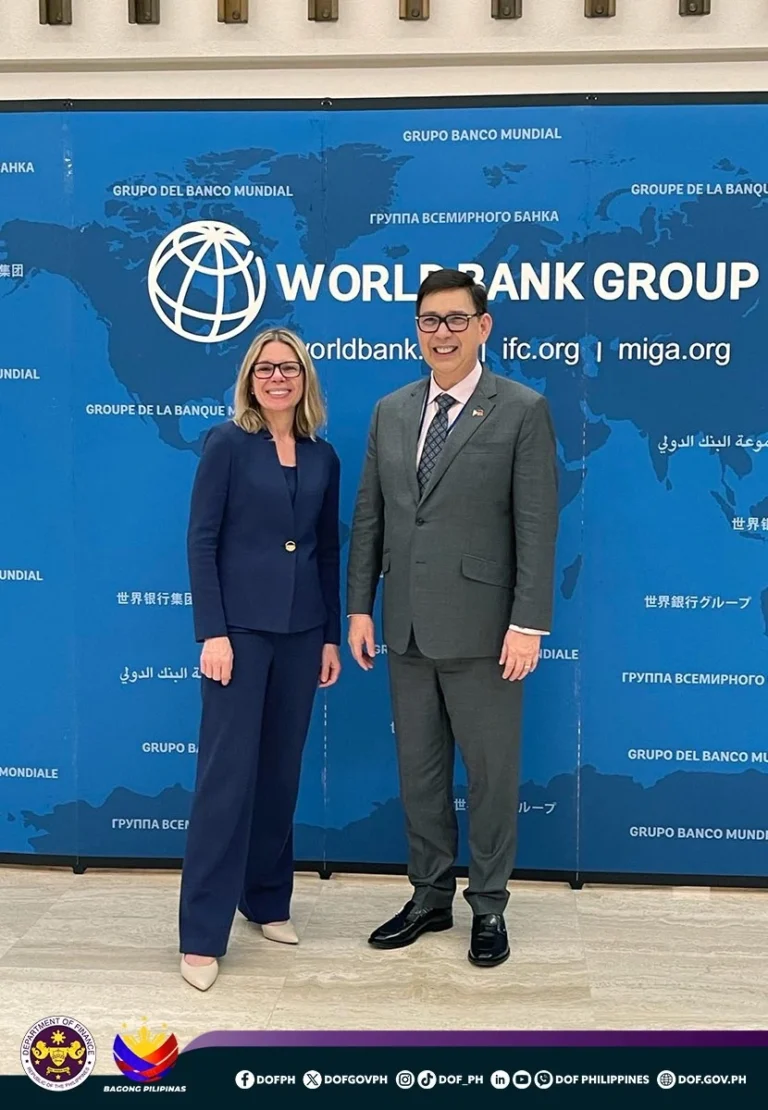Finance Secretary Carlos Dominguez III said there is “unprecedented optimism” over the country’s economic prospects on the Duterte watch, partly because the business community and even ordinary citizens see the Comprehensive Tax Reform Program (CTRP) as the “gamechanger” that will allow the government to effectively pursue its socioeconomic agenda for high and inclusive growth.
Dominguez acknowledged that the victory of the Duterte administration on the first package of the CTRP—the Tax Reform for Acceleration and Inclusion Act (TRAIN)–could not have been possible without the support of civil society organizations and advocacy groups that have, along with the Department of Finance (DOF) and other government agencies, become “a tireless army for reform.”
“A modern tax system will be a game-changer. The business community understands that. The man-on-the-street understands that. This is why there is unprecedented optimism about our economic prospects. This is why the stock market has reached unprecedented levels since the start of this year,” Dominguez said at the recent thanksgiving lunch tendered by the DOF for government officials and the civil society and advocacy groups that have supported the TRAIN law from its inception.
Dominguez said this “partnership for reform speaks with a credible voice. Our people now view tax reform, notwithstanding its initial costs to the consumer, as a necessary and desirable undertaking. We need that firm consensus to win over vested interests and entrenched ideological view.”
He said he looks forward to the DOF’s continued “enlightened partnership” with civil society and other reform-oriented groups in pushing the succeeding components of the CTRP in the Congress.
The DOF submitted to the House of Representatives in January the CTRP’s second package, which covers corporate tax cuts and the modernization of fiscal incentives.
Dominguez said earlier the DOF will also submit within this year the rest of the CTRP’s components— Package 2 plus, which covers taxes on tobacco, alcohol, mining, coal, and casinos; Package 3, which tackles property taxation, and Package 4, which involves passive income and financial taxes.
The Congress is also expected to pass Package 1B of the TRAIN within the first quarter of 2018, which covers the estate and general amnesty, the relaxation of bank secrecy laws, automatic exchange of information, and the adjustment in the Motor Vehicle User Charge.
President Duterte signed last Dec. 19 Package 1 or the TRAIN, which slashed personal income tax (PIT) rates while raising additional revenues through, among others, adjustments in the excise taxes on fuel, coal and automobiles; broadening the value-added tax base and imposing a tax on sugar sweetened beverages.
Compensation earners across the country started to benefit from the TRAIN in January through substantial increases in their take-home pay as a result of zero or lower PIT rates.
Alongside this immediate tangible benefit, Dominguez said the revenue gains from TRAIN “will enable us to support the first stages of the ambitious Build, Build, Build program. The shovel-ready infra projects will help stimulate our economic expansion and encourage new business activities.”
The finance chief pointed out anew that TRAIN was unprecedented, given that it is the first time the government is implementing a tax reform program not in response to a fiscal emergency but because it is correcting an unfair, complex and inefficient system.
“We embarked on the comprehensive tax reform program without a crisis prompting us to do so. This is unprecedented. In the past, reforms in the tax system were done under great duress, when the debt burden has piled high and when the fiscal order was in danger of breaking down,” he said.
Dominguez added: “We are under no such emergency. We are reforming the tax system because that is the right thing to do. Reform will simplify the system and make it fairer. It will correct the injustice against an overtaxed middle class. It will help us further deepen administrative reforms to ensure revenue adequacy in the coming years.”
Moreover, a modern tax system will enable the government to “imagine a comprehensive infrastructure build-up to bring our economy abreast with neighbors in the region” and “achieving investments-led growth that will make our economy more inclusive,” Dominguez said.
In thanking the various organizations that have backed the TRAIN, Dominguez recognized the role of civil society groups in delivering the DOF’s message of tax reform to the grassroots as well as the contributions of the professional associations in helping refine the reform provisions and mobilizing experts to articulate the gains such reforms will bring.
“I look forward to continuing this enlightened partnership to push forward the succeeding components of the tax reform program. Every victory we win on the road to building a modern tax system is a victory for our people,” Dominguez said.
-oOo-





